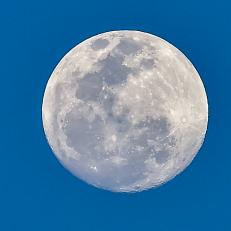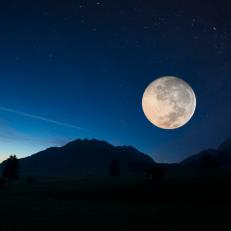Neptune: The (Official) Last Planet
On September 11, 2020 Neptune will be in opposition with Earth. This means that earth will pass between Neptune and the sun during its orbit. This is an annual occurence and its the closest Earth gets to Neptune during the year. To celebrate, here are some images of Neptune, our 8th planet.
Neptune is 2.6879 Billion Miles from Earth
Neptune has Only Been Visited by One Manmade Object - Voyager 2
This picture of Neptune was produced from the last whole planet images taken through the green and orange filters on NASA's Voyager 2 narrow angle camera. The images were taken at a range of 4.4 million miles from the planet, 4 days and 20 hours before closest approach. The picture shows the Great Dark Spot and its companion bright smudge; on the west limb the fast moving bright feature called Scooter and the little dark spot are visible. These clouds were seen to persist for as long as Voyager's cameras could resolve them. North of these, a bright cloud band similar to the south polar streak may be seen.
Neptune Great Dark Spot in High Resolution
Neptune's Rings
In Neptune's outermost ring, 39,000 miles out, material mysteriously clumps into three arcs. Voyager 2 acquired this image as it encountered Neptune in August of 1989.
Crescents of Neptune and Triton, One of Neptune's 14 Moons
This dramatic view of the crescents of Neptune and Triton was acquired by Voyager 2 approximately 3 days, 6 and one-half hours after its closest approach to Neptune (north is to the right).
Neptune is the Coldest Planet in our Solar System
This image of Neptune was taken by NASA's Voyager 2's wide-angle camera; small trails of similar clouds trending east to west and large scale structure east of the Great Dark Spot all suggest that waves are present in the atmosphere and play a large role.
























